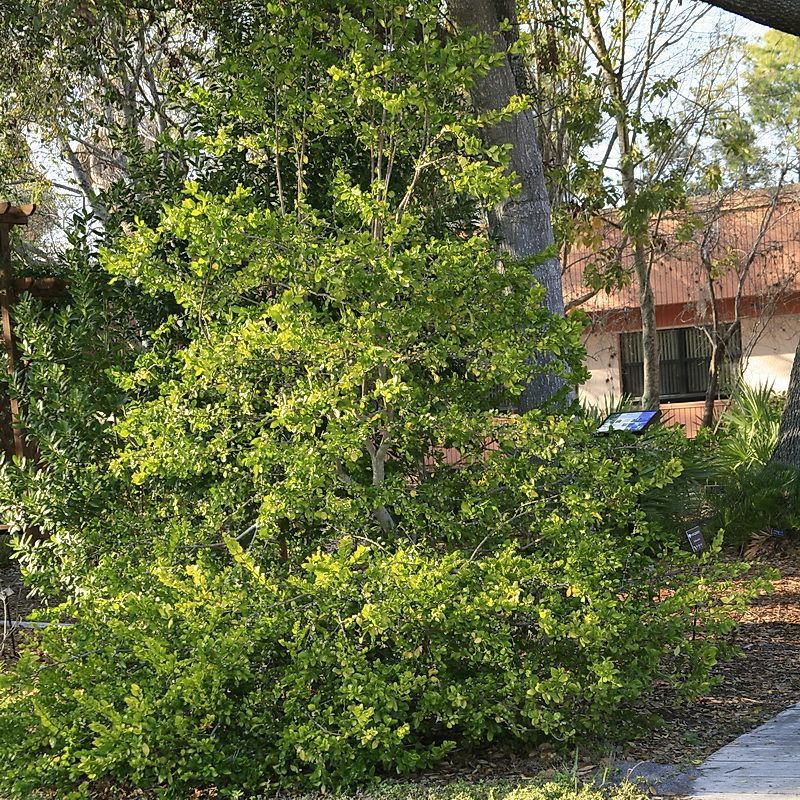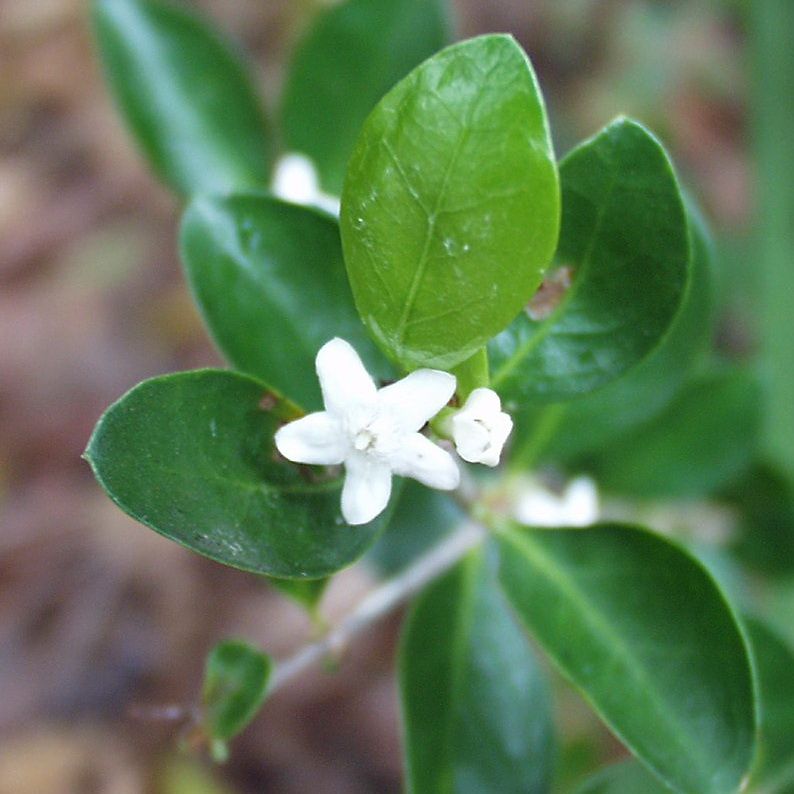FNPS Plant Database
Randia aculeata
Nomenclature
Common Name:
Synonym(s):
Genus species:
Family:
Rubiaceae
Plant Specifics
Form:
Size:
Life Span:
Long-lived perennial
Flower Color:
Fruit Color:
Phenology:
Noted For:
Landscaping
Recommended Uses:
Considerations:
Availability:
Propagation:
Light:
Moisture Tolerance:
Always Flooded---------------------------------Extremely Dry
□□□□□□□□□□□□□□□■■■■■■■■■■■■■■■■■■■■■■■■□□□
Usually moist, occasional inundation -to- Very long very dry periods
Salt Water Flooding Tolerance:
Unknown
Salt Spray/Salty Soil Tolerance:
Moderate. Tolerant of salty wind and may get some salt spray
Soil or Other Substrate:
Soil pH:
Suitable to Grow In:
10A,10B,11

USDA zones are based on the average annual extreme minimum winter temperature.
Don't know your zone? Click here to search by zip code.
Vouchered In:
Ecology
Wildlife:
Nectar plant for Schaus' swallowtail (Heraclides aristodemus) and other butterflies. Larval host plant for tantalus sphinx (Aellopus tantalus) moths.
Fruits attract birds. Also used for cover.
Native Habitats:
Comments:
Ethnobotany:
General Comments:
Citations:
Gann, G.D, C.J. Abbott, C.G. Stocking, K.N. Hines, and collaborators. (2001+). White indigoberry [in] Natives For Your Neighborhood. ( https://www.regionalconservation.org/beta/nfyn/plantdetail.asp?tx=Randacul ). Accessed 2026. The Institute for Regional Conservation. Delray Beach, Florida.
Haehle, Robert G. and Joan Brookwell. (1999). Native Florida Plants. Gulf Publishing Company. Houston, TX.
Hammer, Roger. (2015). Attracting Hummingbirds and Butterflies in Tropical Florida. University Press of Florida, Gainesville.
Huegel, Craig N. (2010). Native Plant Landscaping for Florida Wildlife. University Press of Florida, Gainesville.
Nelson, Gil. (2003). Florida's Best Landscape Plants: 200 Readily Available Species for Homeowners and Professionals. University Press of Florida, Gainesville.
Osorio, Rufino. (2001). A Gardener's Guide to Florida's Native Plants. University Press of Florida, Gainesville.
Rogers, George. (2016). White Indigo Berry, bob bob bobbin' along [in] Treasure Coast Natives. ( https://treasurecoastnatives.wordpress.com/2016/06/25/white-indigo-berry-bob-bob-bobbin-along/ ). Accessed 2026.
Wunderlin, R. P, B. F. Hansen, A. R. Franck, and F. B. Essig. (1999+). Atlas of Florida Plants. ( https://florida.plantatlas.usf.edu/ ). [S. M. Landry and K. N. Campbell (application development), USF Water Institute.] Institute for Systematic Botany, University of South Florida, Tampa.











